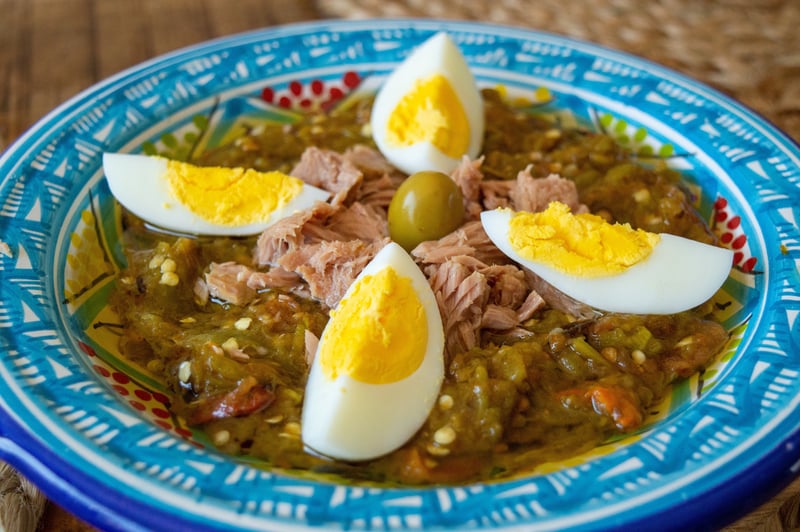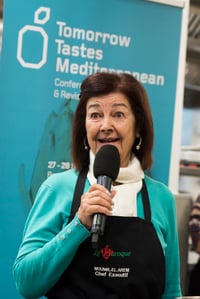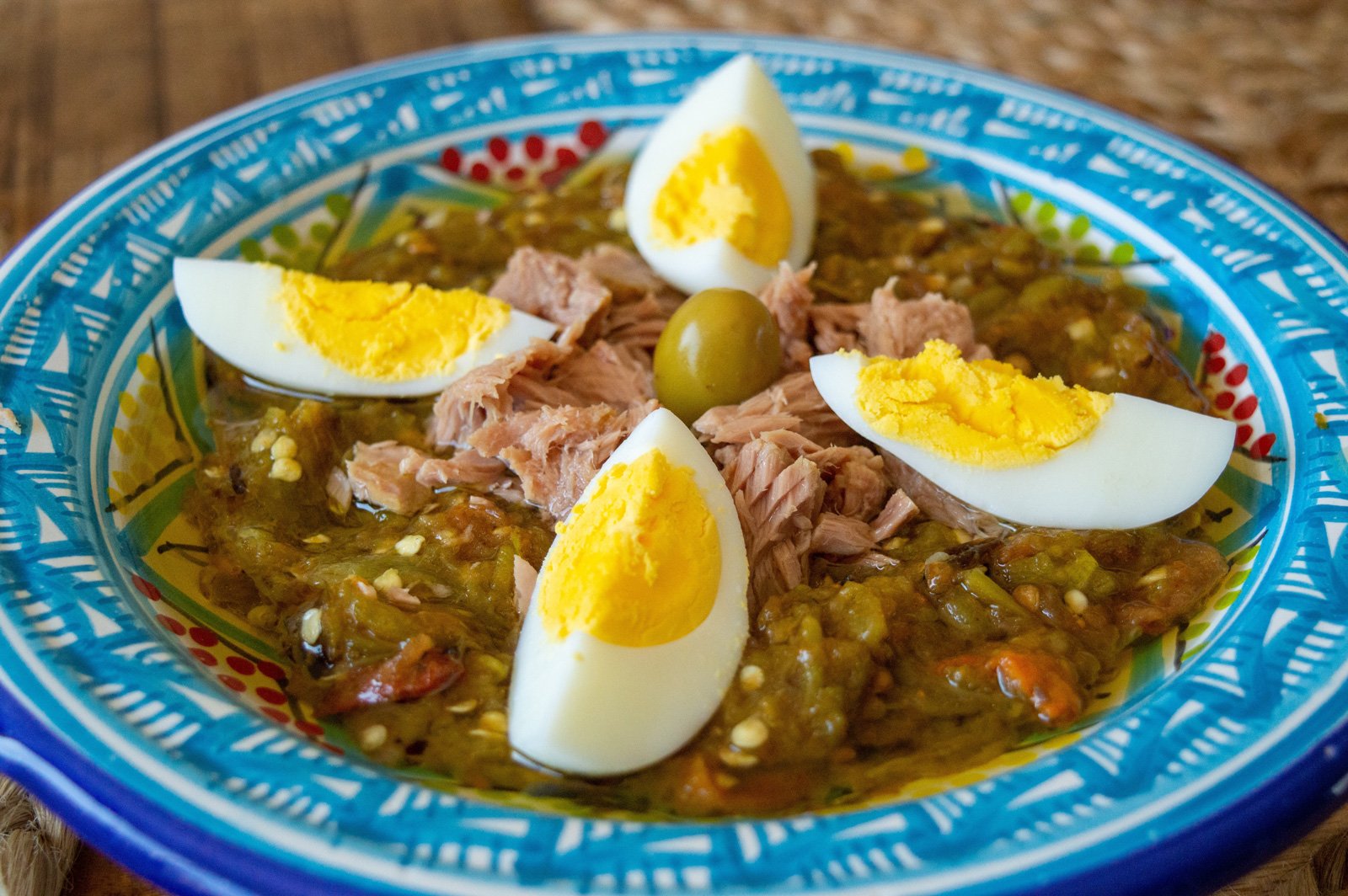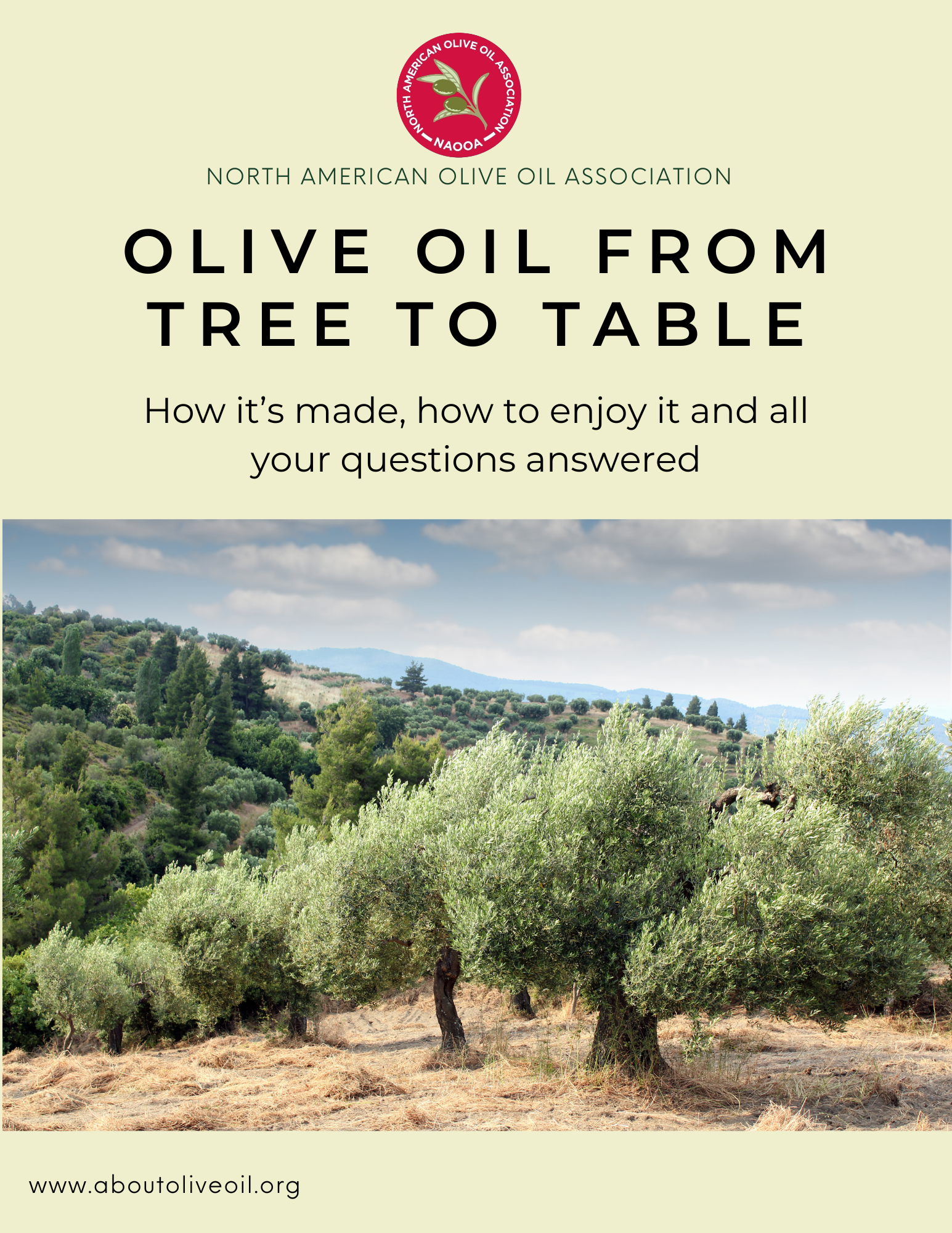By Hafida Ben Rejeb Latta
Ramadan is a special month for Muslims all over the world. It’s a time of reflection, spiritual growth, and family gatherings. One of the most important parts of Ramadan is the Iftar, the breaking of the fast at sunset with a delicious meal.
The Ramadan fast is not only a physical but a spiritual exercise that has been shown to be beneficial to our health. To get the most out of these benefits, the holy Qur’an tells Muslims to focus especially on the quality, not just the quantity of the foods during Iftar and Suhoor (early morning breakfast) throughout this blessed month. Because one has a relatively short time each day to give one’s body all the essential nutrients and fluids it needs to stay healthy, Muslims break the fast with dates and bread soaked in good quality olive oil, as the holy Qur’an prescribes.
Allah in Surah Tin tells Muslims, “By the fig and the Olive and by Mount Sinai, and by this city of security [Makkah], We have certainly created man in the most excellent forms.” He adds in Surah (6-141), “Eat of its fruit (olives) when it is ripe, and offer Zakat (give to charity) on the day of its harvest. And do not overeat. Because He does not like those who commit excess.”
In fact, Allah praises olives six times when He is talking about the blessings He has sent us. In Surah Yusuf, he mentions their nutritional, medicinal, and cosmetic benefits: “Eat olive oil and massage it over your bodies since it is a holy tree.” He also stated that olive oil cures 70 diseases. So for Muslims all over, olive oil does not only have nutritional, medicinal, and cosmetic value, it fulfills a religious function that signals Allah’s blessing for Muslims. And since Ramadan is a special month and Iftar is an important part of it, Muslims use olive oil daily and generously throughout the feast.
Science now confirms the many values of olive oil mentioned in the holy book. Olive oil moisturizes hair and reduces scalp irritation. It contains omega-3 fatty acids which thicken hair. Among health-promoting qualities, olive oil is claimed to improve blood circulation, prevent premature aging and solar damage to the skin, because it contains so many antioxidants. It is also linked to lowering cholesterol levels and blood pressure. It has cardiovascular and digestive tract health benefits. It is a defense against cancer and blood clots. It’s a good source of iron and vitamin E. It has been known to fight inflammation and boost bone health.
All over the Middle East and North Africa, certainly in my home country, Tunisia, extra virgin olive oil is a key ingredient in traditional Ramadan dishes, adding flavor and health benefits to the meals. Here are some of the most popular dishes to cook with olive oil during Ramadan for Iftar and Suhoor: Brik, lentil soup, shorba (soup), grilled kebabs, tuna and potato salad, slata méchouia, tajin, couscous, curry, even the global dishes spaghetti and lasagna. You can drizzle olive oil on any salad or hummus to enhance its flavor. Instead of butter on your toast, try extra virgin olive oil and feel for yourself the benefits to your health. It is definitely more delicious than other oils. Olive oil is profitably used to make sweets like, rfisa, makroudh, baklava, and zlabia. You can also marinate any meat with olive oil which not only tenderizes the meat but enhances its flavor.
Most of all, incorporating olive oil into Eid recipes is a way to honor this sacred gift, adding a layer of spiritual depth to the Islamic festive feasts.
Recipes from my book using olive oil from The Tunisia Cookbook: Healthy Red Cuisine from Carthage to Kairouan
Recipes

SLATA MECHOUIA
Serves 4. Cooking time 1h
This grilled Tunisian salad is a smoky-tasting starter dish/salad, sometimes also served to accompany other dishes. It is more like a grilled vegetable sauce than a salad. In the month of Ramadan, it is served almost daily.
Ingredients:
- 2 hard-boiled eggs
- 2 onions (200g)
- 200g tomatoes
- 200g sweet green peppers
- 60g hot green peppers
- 100g tinned tuna fish
- 1 tbsp capers
- 4 black olives
- Juice of 1 lemon
- 4/6 tbsp extra virgin olive oil
- Salt and pepper to taste
Start by grilling the tomatoes, hot and sweet peppers. Peel them when hot and remove the seeds. Peel the onions and grill them. Cut all the ingredients into small pieces. Add the lemon juice and capers and mix. Season with salt and pepper to taste. Drizzle the olive oil generously over the vegetables. Decorate with the tuna in pieces, the hard-boiled eggs in slices, and black olives. Serve cold. Saha taiba (wishing you good health in Arabic)
CHICKEN COUSCOUS
Serves 4. Cooking time: 1h 15 min
This is my own recipe. Traditionally a two-part couscous pot is used.
Ingredients:
- 1 small chicken 1kg
- 500g couscous
- 150g carrots peeled and cut roughly (2 x 3 cm)
- 150g young turnips peeled and cut (2 x 3 cm)
- 150g onion peeled and diced (1 cm)
- 100g chickpeas from a bottle
- 15g tomato paste = 2 tbsp
- 200g chopped tomatoes from a tin
- 150g courgette (3 x 4 cm)
- 150g aubergine cut as the courgettes
- 300g butternut squash (6 x 8 cm)
- 150g green peppers seeded and cut up in 8 pieces (2 pieces per person)
- 4 tbsp extra virgin olive oil
- 4g harissa
- 8g cinnamon powder
- 8g cumin powder
- 8g coriander powder
- 2 pinches saffron diluted in a bit of water
- Salt and pepper to taste
Clean and cut the chicken into 8 pieces. Season the pieces with salt, pepper, cumin, coriander, and cinnamon. In the bottom pot, heat the oil and put the chopped onion to fry (don’t let it brown). When translucent, add the chicken, seal it, and add the tomato paste. Fry for 5/10 minutes longer then add the chopped tomatoes as well as a little salt and pepper. Add the cleaned and drained chickpeas and the harissa. Cover with water. Let this simmer for 10-15 minutes. In the meantime, peel and cut the carrots and the turnip and add them to the broth. Place the top part of the couscous pot on top and moisten the couscous with a few tablespoons of sprinkled water. Make sure the grains do not stick together. Cover and let cook for 10-15 more minutes.
Put the couscous in a large dish and moisten again with a little more water. Always be careful to ensure that the grains do not stick together or you could end up with a paste rather than couscous. In the bottom pot, add the cut-up courgette, aubergine, butternut squash, and the saffron. Return the couscous into the upper pot so that it continues to cook over the steam. Cook for another 15 minutes on moderate medium heat. Add the green pepper to the broth and check the seasoning and that the broth is not too dry and has enough water. Let it cook for 5/7 minutes, being careful not to overcook the vegetables.
Pour the couscous into a large dish, drizzle a tablespoon of extra virgin olive oil, season with salt and pepper and pour some of the broth over it. Mix gently so that the couscous absorbs the liquid. The pieces of chicken now go decoratively on top, along with the butternut squash all around and the chickpeas in the middle. Serve the vegetables in another large bowl and the broth in a sauceboat. You may want to serve separately a little harissa in a tiny dish for those who like it hot. Serve hot. Saha taiba.
KAIROUAN MAKROUDH
Serves 4. Cooking time: 1h 10 mins. Dough standing: 3h
No special occasion in my hometown, Kairouan, is complete without makroudh. It brings together wheat from the earth, dates and olive oil from the tree, honey from the bees, and skill from the hands that make it. It is hailed as a marriage of a baker’s skills allied with natural ingredients, all working in harmony to produce the best possible mouthful of flavor.
Ingredients
For the dough:
- 500g semolina
- 125g flour
- 125g seen (clarified butter)
- A small tsp baking powder
- 2 pinches salt
- 30g = 4 tbsp orange blossom water
- 125ml = half cup warm water
- 1 litre = 4 cups olive oil (the makroudh is deep-fried)
For the date filling:
- 300g dates with stones removed
- 2 tbsp smen (clarified butter)
- 3 tbsp orange blossom
- Half tablespoon ground cinnamon
- Half teaspoon ground cloves
For the syrup:
- A generous half cup of honey
- 2 tbsp of orange blossom
- Juice of a lemon
1) Blend the dates and mix them well with the butter, orange blossom water, cinnamon, and cloves until you obtain a smooth paste. Set aside.
2) In a large bowl, pour the semolina, the flour, and the baking powder and mix well. Make a well where you pour the melted butter. Work in the mixture of semolina and flour a bit at a time until obtaining a smooth dough. Leave to stand for 3 hours. Sprinkle over the orange blossom water and the warm water and with your fingertips work the dough and knead it well. If the dough is too hard add a little water to soften it. The resulting dough needs to be compact before you can cover it with cling film. Then leave to stand for a further 1 hour.
3) Take a handful of dough and shape it into a sausage. With the index finger make a canal lengthwise in the center. Take a little bit of the date paste and roll it into a slimmer sausage. Place it in the canal and pull the edges of the dough back over the date paste to cover it. Roll the whole thing once more to get a sausage-like shape of about two and a half cm of thickness. Cut diamond shapes which you place on a baking sheet. Repeat until all the dough is used.
4) Heat a large pot with olive oil and deep fry the makroudh on each side until brown. Make sure to arrange the diamonds close to each other so that the dates do not burn. When ready place them on a paper sheet so that the oil is absorbed.
5) Over low heat 150ºF (65ºC). Cook the honey, orange blossom water, and the lemon juice for 20/25 minutes. Away from the heat, and while the makroudh is still warm dip both sides of the cake in the mixture. Set aside for 1 hour before serving.
Note: Makroudh keeps for a few weeks when kept in an airtight box.
About the Author
 Hafida Ben Rejeb Latta was born in 1944 in Kairouan, Tunisia. Hafida has graduated from 3 universities (in law and administration in Tunis 1965, in French and English languages and literature in Hertfordshire UK 1981, and a Master in language acquisition in London 1998). She married a British Council director in 1967 and raised two children now (a British diplomat and an oil journalist). She has lived in 8 countries. She has written two books and, since retiring, lives in 2 countries (the UK and Spain). She speaks six languages. Her love is cooking healthily, traveling, and writing.
Hafida Ben Rejeb Latta was born in 1944 in Kairouan, Tunisia. Hafida has graduated from 3 universities (in law and administration in Tunis 1965, in French and English languages and literature in Hertfordshire UK 1981, and a Master in language acquisition in London 1998). She married a British Council director in 1967 and raised two children now (a British diplomat and an oil journalist). She has lived in 8 countries. She has written two books and, since retiring, lives in 2 countries (the UK and Spain). She speaks six languages. Her love is cooking healthily, traveling, and writing.
Purchase: https://amzn.to/3SRC3eD
Photo credit: Barcelona Culinary Hub





